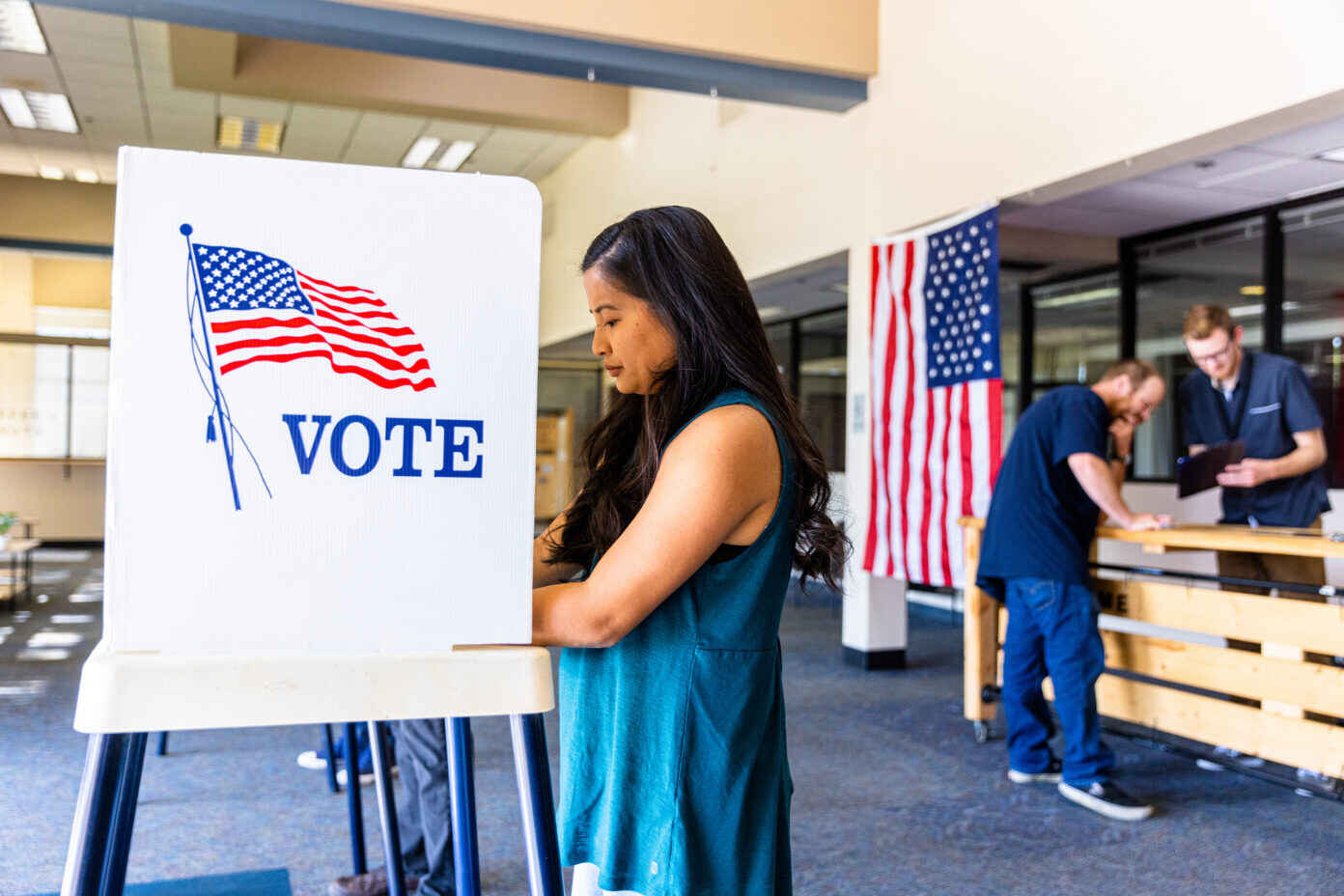National Voter Education Week: How States Can Improve Health by Increasing Voting Access
October 4, 2023
Overview
Recent research has revealed a strong correlation between access to voting and public health outcomes: states that have more inclusive voting policies combined with higher levels of civic participation have citizens who have better health outcomes. Unfortunately, for many Americans it is not easy to vote, and there has been a wave of restrictive voting laws over the last several years.

Voting and democracy are the cornerstone of the American experiment. Our founders envisioned a government that was directed by the people and for the people. The most import facet of this government by the people, of course, is access to the polls to vote. Unfortunately, for many Americans it is not easy to vote, and there has been a wave of restrictive voting laws over the last several years. In 2021 alone, 19 states passed laws restricting access to voting, and this represents only a small fraction of the legislation that was introduced.
Public policy and lawmakers shape everything about our world and environment, including health, social, and economic policy. Recent research has also indicated that that there is a strong correlation between access to voting and public health outcomes: states that have more inclusive voting policies combined with higher levels of civic participation have citizens who have better health outcomes. Using the Cost of Voting Index and health data gathered from the Behavioral Risk Factor Surveillance System and America’s Health Rankings, this correlation is easy to see, as illustrated in the Health & Democracy Index.
The State of Washington has an overall cost of voting index score of two out of 50. This means that the overall time and effort associated with casting a vote in Washington is minimal compared to the time and effort required in other states. Washington has inclusive registration policies, no restrictive voter identification laws, allows voting at home (via mail-in ballot), and restores voting rights to people with a felony conviction upon release from incarceration. Washington also has a high overall self-rated health score, with 84 percent of survey participants indicating that their health is good or better when asked about their general health, and an overall premature mortality ranking of six out of 50.
Contrast Washington with Mississippi. Mississippi has an overall cost of voting index score of 47 out of 50, indicating that it has a higher burden when it comes to the time and effort to cast a vote. Mississippi does not have inclusive registration policies, has restrictive voter identification requirements, does not allow voting at home, and does not have restoration of voting rights for those convicted of a felony. In Mississippi, a state with some of the worst health outcomes in the U.S., only 78 percent of survey participants indicated that their health is good or better and the overall premature mortality ranking is 49 out of 50. Comparing Mississippi and Washington, the correlation between access to voting and overall health is obvious and these provided metrics represent only a small fraction of what has been uncovered by recent research.
The states that experience the highest overall health rankings have several specific characteristics in common. These states have inclusive registration laws (meaning automatic voter registration, same day, and election day registration), allow voters to vote at home (including all mail elections and no-excuse absentee voting), DO NOT have restrictive voter ID laws (meaning they do not require additional documentation at the polls from voters who have already established their eligibility in order to cast a vote), and they restore voting rights post-incarceration to those who have been convicted of a felony or do not restrict voting rights after a felony conviction.
As we consider these trends in the context of National Voter Education Week in October, we can understand some small steps states can take in order to improve the cost of voting in their states and thereby improve the overall health of their citizens. Those states with the highest Cost of Voting Indices should look to the example of states with the lowest to see how they can implement voting laws that will increase access to elections. Our democratic experiment only succeeds when everyone has the opportunity to lift their voice by casting ballots on election day. Educating voters about the important link between voting and health is one way to support an informed electorate and help bridge the gap between registering to vote and casting a ballot.
This post was written by Haley Campbell Garcia, J.D. Candidate, Class of 2024, University of Kentucky J. David Rosenberg College of Law and reviewed by Dawn Hunter, J.D., M.P.H., Director, Network for Public Health Law – Health Equity Team.
The Network for Public Health Law provides information and technical assistance on issues related to public health. The legal information and assistance provided in this document do not constitute legal advice or legal representation. For legal advice, readers should consult a lawyer in their state.
Support for the Network is provided by the Robert Wood Johnson Foundation (RWJF). The views expressed in this post do not represent the views of (and should not be attributed to) RWJF.
